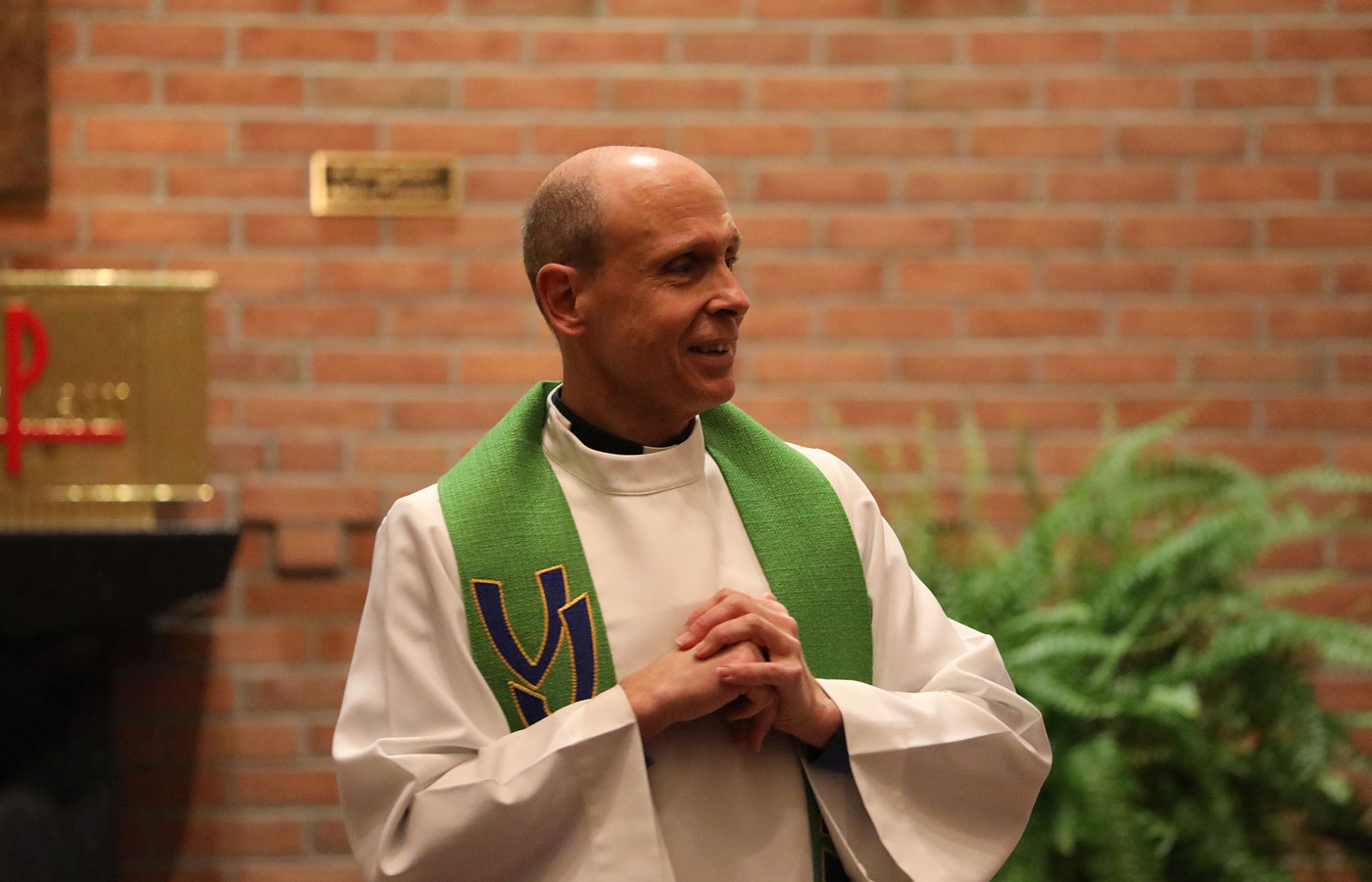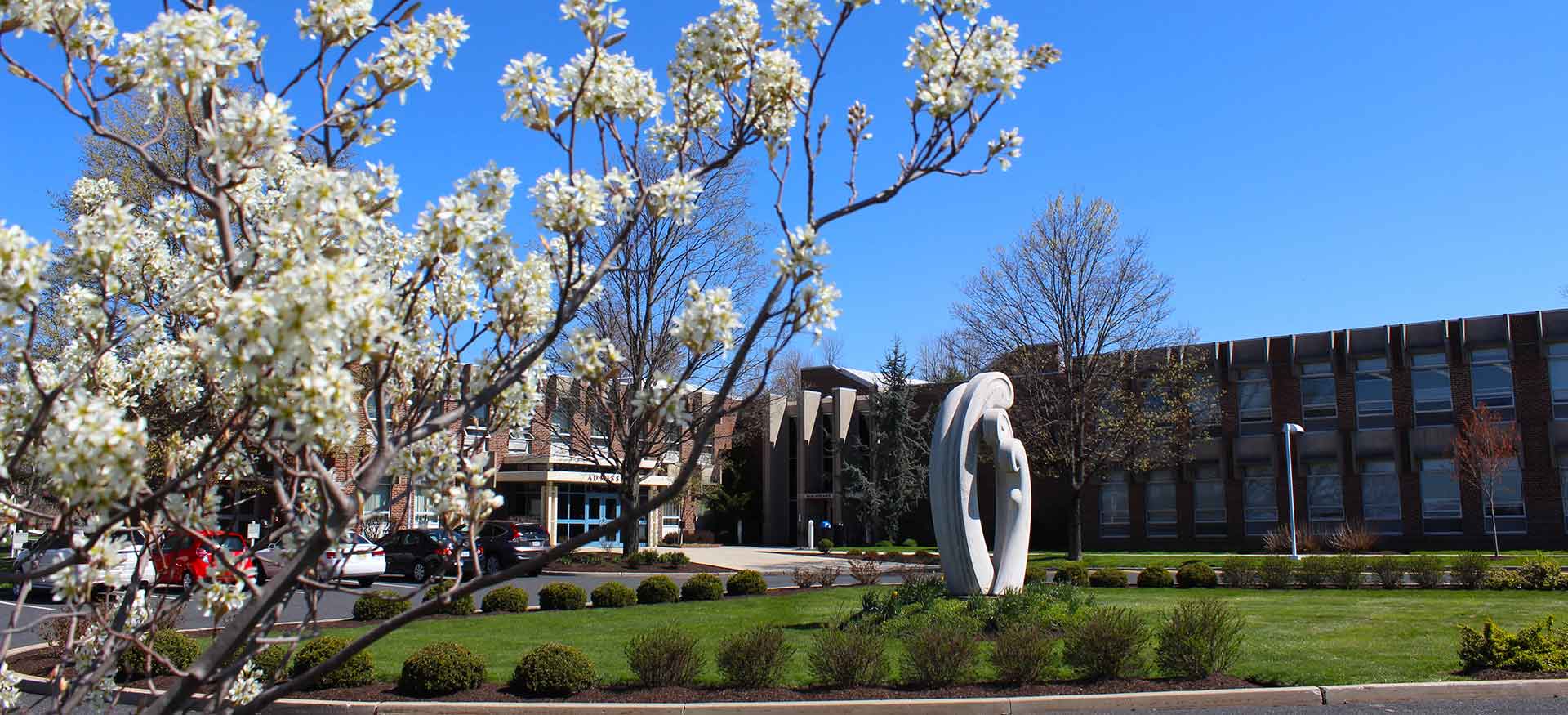Opening-of-the-Semester Evening Prayer

It’s good to gather for prayer as we mark the beginning of the New Year and this new semester. Let me share a story and then conclude with two considerations.
The story is about Fr. Tom Hagan, OSFS. He lived here at Wills Hall in the ‘80s and ‘90s while chaplain at nearby Moravian and Lafayette Colleges. On his first missionary experience as a young priest, he made the worst mistake one could possibly make. He was in Mexico and preaching the usual basic stuff that we need to avoid sin and do good. But his Spanish wasn’t perfect, and there are two verbs that sound alike – pescar and pecar.
The word pescar means to fish and the word pecar means to sin. He confused the two and started preaching on the dangers of fishing for six months. He thought he was preaching on sinning. He would say, “Mis hermanos, tenemos muchos pescados.” “My brothers and sisters, we all have many fish. God died for our fish. I fish, you fish, we all fish. The Lord does not want us fishing anymore.” The problem was he was preaching this message in fishing villages!
One day he got really revved up. He said, “Bring your fish to me! Bring them to me in confession.” And sure enough, an old man came in carrying fish. He said, “Padre, we love you, but “Estas muy loco. Here’s the fish.” Father Tom always jokes, that if you ever go down there, they still have terrible guilt feelings about fish. They sin like crazy now, but they do NOT fish!
As we begin this new semester, it’s good we gather here to pray to God and to pray for one another. Like Fr. Tom, we all want to do good. Whether students, faculty, or staff – we want to do our best.
An experience that I have had in teaching, and one I presume may be common, is what one writer calls "the imposter syndrome." Basically, the teacher is afraid that students will discover he or she doesn't really know all that much or, worst case scenario, doesn't have a clue about what he or she is talking about.
I feel a little of that "imposter syndrome" as I begin my ministry as president. The s added to the verb, pecar, had dramatic consequences — but they were funny. Some mistakes leave us feeling very vulnerable. I think we all, deep down, worry about how we are coming across at times … we are all too aware of our own weaknesses and shortcomings.
My favorite definition of vocation comes from the writer and theologian, Frederick Buechner: “The place God calls you to is the place where your deep gladness and the world's deep hunger meet.” Now that I’ve shared the story of Fr. Tom, I note two implications. We just heard the significance of the letter "s". I hold up two "s" words for our consideration as we grow this new semester in discovering our deep gladness and the world’s deep hunger.
This week, we herd the term “s - hole” countries. How sad that as our nation remembered the legacy of Martin Luther King, vulgar and racist language was in the news. As we begin this new semester, I hold up that incongruity by quoting Dr. King who said, “History will have to record that the greatest tragedy of this period of social transition was not the strident clamor of the bad people, but the appalling silence of the good people.” In the face of repugnant rhetoric, we cannot remain silent.
James Baldwin, a novelist and social critic who was black, gay and a characteristically unapologetic writer, is featured in a new documentary I Am Not Your Negro. His words will be used to narrate this powerful film about the nuances of race and class in America. I quote him now: “Ignorance allied with power is the most ferocious enemy justice can have.” Racism is a question of power and not merely attitude. Education is powerful! What we do this new semester in the lab, on the field, in the classroom, on-line, in the chapel, in the library, in our dorm room—wherever—we can be a healing presence in a concrete way.
Which leads to the other "s" word. This one is Salesian. We are a Catholic, Salesian university whose mission is to:
… provide men and women with quality higher education according to the philosophy of Christian humanism. The University imparts knowledge about, and develops talents for personal, familial, and societal living. DeSales University enriches the human community and enhances the dignity of the individual through its educational endeavors.
That mission statement is a tall order. But, with the inspiration of our patron, St. Francis de Sales, we can enhance the dignity of the human family. It would be somewhat anachronistic to apply a 21st century social justice ethos to a 17th century theologian, but St. Francis de Sales wrote so presciently about our world today in his Treatise on the Love of God. He uses an image called unidiverse. Listen to his words:
God draws the wonderful variety of people and things in seasons, generations, centuries, each in its order as they were meant to be. The supreme order of God’s activity is the reverse only of confusion, of disorder, NOT of distinction or variety; on the contrary, it makes use of these to constitute beauty ... which is made up of every created thing, visible and invisible.
All these, taken together, are called the universe – perhaps because their diversity amounts to unity. It was as though we were saying unidiverse; that is to say, unique and diverse, uniquely distinct or distinctly unique.
This is a very Salesian understanding of solidarity. We are a human community which is first and foremost beautiful, made up of every created thing, unique and diverse at the same time. May this new semester be a time for us to discover the deepest longings of our lives as we meet the deep needs and suffering of the world.




